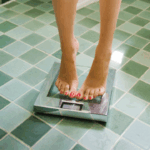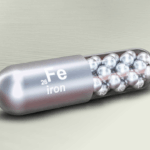
You and your partner have decided that it is time to start a family; however, you may experience difficulty becoming pregnant like many other couples today.
Conception Protocol for Women and Men
Recent medical studies report an alarming trend: fertility rates in women and men in the United States and Canada are declining. At least one in eight couples encounter fertility challenges, and approximately 15% cannot conceive after one year, and 33% are turning to fertility treatments.
What’s affecting fertility? Is it something we are eating or not eating? Is it our toxic environment? What forces are challenging our fertility, and how can we fight back?
Perhaps the most basic measure of a civilization is reproducing successfully to meet future demands. Although reproduction is fundamental to civilization’s future, it is also the factor that makes it most vulnerable. The reproductive system, the growing fetus, and the infant are susceptible to disruptions, whether from lack of nutrients or the ever-increasing exposure to toxins in our food and environment.
Sometimes, infertility affects one partner, or a network of predisposing factors can hinder fertility.
For women, polycystic ovary syndrome (PCOS) is one of the major causes of infertility and several other factors such as endometriosis, and thyroid and ovulation disorders. They have also found vaginal lubricants to affect sperm motility negatively. The most common cause for men is sperm quality, quantity, and motility. Abnormal semen is responsible for about 75% of all male infertility cases. Determining the cause of infertility is difficult, and sometimes there may not be detectable physiological causation. The bottom line: sperm counts for men in North America, Europe, Australia, and New Zealand have declined by over 50% in the last four decades. A good deal of research has focused on exposure to endocrine-disrupting chemicals (EDCs), like Bisphenol A, industrial chemicals, electromagnetic frequencies, heavy metals, and pollution. Other research has pointed toward changes in our modern lifestyle, including decreased physical activity, increasing body mass indexes, and less healthy diets. No matter what the causes, the trend is alarming.
Conception support
Supplements
Omega-3s (EPA and DHA) directly impact improved sperm motility, concentration, and structure. Studies show that the rate of successful pregnancies in previously infertile couples increased by 40% when the level of omega-3 fatty acids were normal.
For women, studies show that omega-3 fatty acids lower the risk of premature birth, and taken during breastfeeding may facilitate the child’s brain development.
WomenSense® EstroSense® is a formula that helps maintain healthy hormone levels by targeting estrogen metabolism. EstroSense helps women who are experiencing estrogen-dominant symptoms such as irregular menstruation, no men- struation, PMS, or heavy periods. It is also beneficial for men experiencing an imbalance of estrogen to testosterone, where they are converting more testosterone to estrogen.
Vitamin D has a positive effect on sperm motility and normal sperm structure. Vitamin D is also an emerging factor influencing female fertility and in vitro fertilization (IVF) outcomes.
L-carnitine has been found to improve fertility in women and improve sperm motility in men.
Additional nutritional
Support for Women
Folic acid is an essential vitamin in pregnancy to prevent neural tube de- fects. Studies have shown that infertile women are deficient in folic acid (folate or vitamin B9), and that supplementation has been shown to reverse infertility.
Women’s Multi Probiotic supports imbalances in the vagina’s microflora. Changes in microflora have been linked to reproductive failure and adverse pregnancy outcomes such as preterm labour, miscarriage, and spontaneous preterm birth.
Additional nutritional
Support for Men
Zinc picolinate increases sperm counts and motility. Studies show an increase of 74% in total normal sperm count in previously subfertile men taking 66 mg of zinc on a daily basis, particularly when folic acid (5000 mcg daily) is added to the supplementation.
Vitamin C enhances sperm counts and motility, and in combination with vitamin E improved pregnancy rate by 100%. Vitamin E enhances sperm bind- ing to egg and improved the pregnancy rate by 21%.
The emotional, physical, and financial burden on couples who experience infertility are devastating, but there are many things a couple can do to improve their chances of conception.
For more detailed information on causes, testing, and infertility treatment, please refer to Dr. Jensen’s book Women’s Health Matters: The Influence of Gender on Disease.
Tips for women and men to increase fertility
Avoid common food allergens – An overactive immune system is more likely to attack its own body cells, and the link between food intolerances and anti-sperm antibodies is well established. The two most widely spread food intolerances are gluten and dairy.
Limit hot baths, hot tubs, and saunas – While hot baths and saunas have a myriad of health benefits, the heat can take a toll on sperm. In one three-year study, five of 11 men who stopped taking hot baths were able to raise their sperm count by nearly 500%.
Minimize electromagnetic radiation exposure – Avoid carrying cellphones on your body or in your pocket, and using laptops or tablets on your lap.
Get checked for sexually transmitted disease (STDs) – You may not be aware you have an STD as there are no obvious symptoms for some of them. One example is chlamydia, which is very common. In men, chlamydia leads to sperm abnormalities, and in women, it can lead to scarring and blocked fallopian tubes and miscarriage.
Avoid smoking and minimize alcohol intake – According to some experts, even moderate consumption (1–2 glasses of wine per week) can increase prolactin and suppress ovulation. Nicotine appears toxic to sperm, and thus, smoking can interfere with fertility.
Stay active – Reports suggest that women who stay active are able to conceive more readily than those who do not.
Eat organic foods – Whenever possible, eat organic foods and follow a diet similar to the Mediterranean diet.
Try to reduce stress! – Stress hormones can cause imbalances in many of the reproductive hormones involved in fertility including FSH and LH, decreased progesterone and testosterone, and elevated or decreased estrogen.
Use clean body care products and avoid harmful chemicals – Using clean body care will minimize exposure to EDCs.














